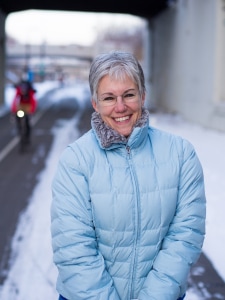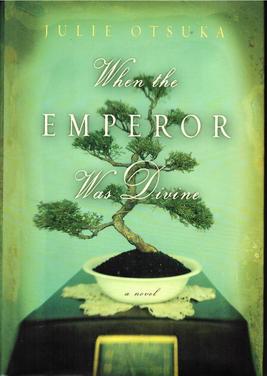 by Emily Wedell and Ranelle Irwin The following is the full text for an interview conducted via email between editors at Hot Dish Magazine and author Rebecca Fjelland Davis. Davis has written and published several short stories and books, and has a strong Midwestern influence in her work. When did you first become interested in writing? Can you remember any details from your earliest works? A: I was never not interested. I fell in love with stories when my mom read to me--long before I learned to read. I had decided before I started kindergarten that I wanted to write stories when I grew up. Based on that, I should have had books published long before I did! My earliest work? Well, I wrote a one-page story about birds in first grade. In sixth grade, I wrote a sci-fi story about living on Mars and also a story from the perspective of a run-away horse. By fifth and sixth grades, my teachers seriously encouraged me to keep writing. Is there a particular place you like to write, or any preference for the setting in which you're writing? A: I guess do the best work when I'm hunkered down at home, either at my desk in the basement or at the kitchen table. I also have a lapdesk for the living room chair and my laptop. So the answer to that question is that I like to be at home in my own space. However, I can write anywhere if I need to...coffee shop, friend's house, etc., but it's best at home. Oh, and I have to have it quiet. I have tried and tried to write with music in the background, but I cannot. It just doesn't work. Strangely, if I'm at someone else's house or a coffee shop, and there's music, I can still concentrate, but not at home. At home, I need the whole cloak of comfort and quiet...and my dog. To what would you attribute the success of your work? A: To be perfectly honest, it's strange to hear this question. I wonder if very many authors who haven't written best-selling books consider themselves "successful." I think of myself as writing and working at stories rather than having success, so I have to stop and think about this. If my work has had success, it's because I never give up. I have a couple books that I have written that will probably never get published, so sometimes I just have to let go and move on to something else; however, when I believe in a story, I keep working at it until it's truly as good as I think it can possibly get, and I love reading it over and over without feeling it needs something--or maybe could be tweaked. And My novels take me a long time, from idea, to first draft, to editing, to trying to sell, to finally being out in bookstores. Each one has taken at least seven years or more for that whole process. Patience is ultimately important. Was there anything particular from the Midwest region that inspired or contributed to your work? A: Everything from the Midwest plays into my work. I'm utterly Midwestern, even though I have lived a few other places. The plains and rivers and lakes and hills and soil of the Midwest are in my blood, and those are the stories I know. My first two books were set in real places--one in Iowa and one in Minnesota. Slider's Son is set in a fictional town in North Dakota, but it's based on a couple real towns there. I try to capture the flavor and feel and mindset of the places and people in the Midwest. It's interesting, too, because some publishers in New York City don't seem to actually understand the midsection of our country. I'm happy to be publishing Slider's Son with a Midwestern press. Do you have a favorite book? A: I have tons of favorite books. My all-time hands-down favorite is pretty common: To Kill a Mockingbird. I think I've read it at least six times, and it never gets old. (I also loved Go Set a Watchman because I thought Harper Lee was being honest about the racism and mindset of the place and the time--but it's not in my list of favorites). Other favorites are The Power of One by Bryce Courtenay, Poisonwood Bible by Barbara Kingsolver, A Tree Grows in Brooklyn by Betty Smith, and A Lesson Before Dying by Ernest Gaines. When I was growing up, my all-time favorite was Caddie Woodlawn by Carol Ryrie Brink. How excited are you about Slider's Son? Can you give us any insights about the path of publication? A: How excited? SOOOOOO excited. And I rather thought that I'd never be as excited as I was when my very first book came out. That day I took my camera to Barnes and Noble to take a picture of my book,Jake Riley: Irreparably Damaged, on the shelf of a bookstore. But you know what? I'm no less excited. I love this story, Slider's Son, and I know it will be the source of some discussion and thinking about history as well as just the story itself. I love historical fiction, so I'm thrilled to finally have a historical novel coming out in the world. Thanks for asking. (I can be a bit over the top sometimes). Path of publication? Well, it's back to the same thing: never give up. Rejection is the biggest part of finding a publisher or an agent--it happens to everybody; it's part of the process. If you truly believe in your story, keep sending it out. But also, be willing to edit and grow and rewrite. If you get some feedback about why a publisher rejected your work, absorb the comments and ponder them. Might that make your story (or poem) better? In many cases, those kinds of comments are what a story needs--not always, of course--but often. We cannot be afraid to "kill our darlings" and edit and change or take out parts that don't move the story along even though we happen to love that part. I cut eighty pages of Chasing AllieCat before it finally got purchased for publication. Those eighty pages included intense personal research, and I love that part of the story, but those scenes needed to go away. That was tough, but it was very necessary. Be open. Never give up. What advice do you have for aspiring authors? A: If as a writer, you question yourself about some aspect of your work: one line in a poem, or one tiny scene or even paragraph in a book or story, then it probably needs fixing. We write the way we feel something, and when we're done, sometimes we stop and wonder about a certain piece--sometimes just a sentence--but we think, "Oh, I think it's fine. I think it works as it is." If we have that moment of doubt, it probably needs fixing. In my experience, that gut response of wondering if it's okay has been right every time. If I wonder that it's maybe not quite right, then it's not. It needs editing. Also, do NOT be afraid to cut, to edit, to rewrite. Everything I have gotten published has been rewritten at least twelve times. Usually fourteen or fifteen. It's how we get better. Be sure to check out Rebecca Fjelland Davis' book Slider's Son, published in September 2017!
10 Comments
 by Ranelle Irwin “‘If there was something wrong with my face,’ the girl asked, ‘would you tell me?’” When the Emperor was Divine (2003) is Julie Otsuka’s short debut novel detailing the hardships of a Japanese-American family taken from their California home and sent to a Japanese internment camp in Utah during World War II. This story uses some familiar elements from contemporary fiction because it is told from the perspectives of each of the family members, with the father’s point of view being especially impactful because of his confession to the crimes of his countrymen. Many stories about World War II focus on the European front, the Holocaust, or the bombing of Hiroshima and Nagasaki, so it’s refreshing to see a book written about what life was like for those in the United States who claimed Japanese heritage. The family in Otsuka’s novel has lived in the United States for a long time and they have adapted to the culture in numerous ways. However, as the war begins, the racist overtones slowly start to emerge. The two children, a sister and a brother, don’t even speak much Japanese, yet because they are a minority race, they have to confront the stereotypes of Japanese people at the time. “On the street we tried to avoid our own reflections wherever we could. We turned away from the shiny surfaces and storefront windows. We ignored the passing glances of strangers. What kind of ‘ese’ are you, Japanese or Chinese?” While the internment camps for the Japanese-Americans were not as awful and unforgiving as the concentration camps that the Germans made for the Jews, this story shows that America acted out of fear and ignorance and used the pretense of “safety” in order to allow these desert internment camps to happen. This book serves as a good reminder of what racism can lead to and how minorities feel about being blamed for the problems of their respective mother countries. When the Emperor was Divine is available for purchase on Amazon, Barnes and Noble, and at other booksellers. |
Archives
April 2021
Categories |
- Home
- About
-
Issues
-
2024 cover page
>
- Editors' Note (2024)
- Fifty-two Minutes
- The Day I Love Myself More Than You
- Shadows
- Bloodlust: The Metamorphosis
- picture this
- rite of passage
- Bathroom Floor
- Cat
- M
- 삼년상 (Sam-Nyun-Sang)
- Valley
- I'm More Than
- I'm Not a Toy
- Rising Phoenix
- Grow
- Canvas
- red :3
- Green Cousins
- The Lighthouse
- Sea of Plants/Planets
- Kitty's Poem
- Fin
- tomie
- Library Class
- Our Lie
- Weavers
- An Old Tree
- A World Without You
- All Must Die
- Flower
- The Canoe
- It's Scary Up Here
- Beautiful Things
- Ma Vie
- The Final Wall
- Hosts
- Waqe Zhiga
- two faced feelings
- imposter syndrome
- Feminism
- Pretty Girls
- It's Just Us
-
See You in Another World (2023)
>
- Editors' Note (2023)
- Voices of the Summer Night
- Lightning Glut
- All The Little Things
- From a Distance
- Confined
- The Night Hours
- A Contrapuntal for the Girl in My Dreams
- Go Back (before they do)
- Snippet of Thought
- The Darkness
- Her Nature
- I Listen
- Stranger In The City
- What Music Does
- Fallen Stranger
- The Black Dress
-
A Fire of Words (2022)
>
- Editors' Note (2022)
- The Floor Wallows Lower
- Cornflowers
- Erudite
- That One Morning
- mom, im afraid
- selenophilia
- Roses and Rainbows
- If a poisonous snake bites itself, will it die?
- Rochester
- Crown of Branches
- Stairs to the Sea
- A Poem Written Entirely From Advertisements
- Pyromania
- silhouette of a bird against winter stars
- thunderstorm in the bedroom
- A Night in Recovery
- sleeping gypsie
- paper dolls&goodbyes
- We Are Women
- Village Air
- Sunshine's Laughter
- the male gaze
- The Forensic Entomologist
- Lacking
- Drowning
- Adelie
-
Create the Wonders We Dream (2021)
>
- Editors' Note (2021)
- Zove
- I'm Sorry
- Fake Smile
- My Friend the Balloon
- Eyes Intertwined
- Perfect
- Only a Moment
- A Dangerous Word
- My Dreams
- The Last 100 Meters
- The Green Void (Villanelle)
- The Whimsical Galaxy (Sestina)
- The Silent Kindness
- Pressure
- Table on the Hill
- The Yukon
- The Shore
- Repentance
- Her and I
- Infections of the Soul
- Threads
- Dream of a High Schooler
- Empty
- little flame
- scars
- black and white
- The Cat
- Joy
- Sweet Honey Bee Stings
- If There Were One Day
- Delete
- Our Hearts to Central Vietnam
- him or Him?
- Ocean
- Es Llaner Beach
- Sewn Together
- Rain
- Yes, I Like
- The Legacy of the Moon
- The Wind Whimpers
- From Here I See
- To Feel Clean
- Red
- Survival
- Substance
- Golden Lies
- Midnight Tango
- Ode to a Spleen
- Modern Siren
- The Night's Diamond Tears
- Beats In Double Time
- A Day in the Flight
- Carved By Venus
- Lifeline
- Everest
- Education
- How Much of Reality Can Be Observed
- What is a Spork
- What is the difference between love and in love
- What would you have wanted? me to say
- Planet Caravan
- The Journey of a Minute
- The Circus of Scars
- Mosaic
- Color
- Love and Acceptance
-
Colors I Never Knew Existed (2020)
>
- Editors' Note (2020)
- Two Weeks' Notice
- A Curious Man
- An Eternity Swathed in Cobwebs
- Hidden Memories: A Villanelle
- A Better Place
- Conscription
- Just Breathe
- Akko
- The Hungry Dark
- And Then Something Shuffled
- Deodorants are a Girl's Best Friend
- The Old House
- Willow
- Perfection
- She Will Be Queen
- Nothing But Space
- a wicked thing
- Anthony
- Cheesecake
- Za
- Coco
- Coexist
- der böse Mann
- Feeding
- Catharsis
- I HAD TO RENAME THIS POEM DUE TO COPYRIGHT ISSUES
- For All The Kids Who Were Told They'd Never Make It... and Believed This
- i Will Always Love You
- Our 4
- Rainy Day
- Space
- The Ocean Cares Nothing of Man
- Sickly Sweet Love
- I call the eating disorder hotline
- Bright and Sunny Day
- Grandma in the Moon
- Interminable Education in Seventeen Syllables
- Macrocosmic Creation
- Middle Class Psyche
- My Sister
- From a Park Bench
- Rain
- A Recollection of Our Memories
- Sadie Got Me in My Feelings
- Uranium Rose
- When I Grow Up - Paige Rhoads
- Who am I?
- 49-53
-
Words Become Reality (2019)
>
- Editors' Note (2019)
- Bear Down: A Sestina
- Kidnapped & Killed
- Lemonade
- Rise
- Someone Who always Pays
- A Simple Story
- The King's Battle
- Aftermath
- Aging Population
- Can we still be friends?
- Carpe Diem
- Coffee
- Day to Day
- Do Not Hold me Closer, Let me Go
- Gift of Time
- Love Everlasting
- A Message to the Youth
- Peach
- Waiting for the Bell
- Randy
- The River & The Earth
- The Show Goes On
- Summer Love
- Sundae
- West Coast Wishing
-
Watch Every Second (2018)
>
- Editors' Note (2018)
- White
- eleven eleven
- Growing Up
- Claustrophobia
- The Cage
- The Soldier's Return
- Spacing Out
- Depression
- Mona Lisa
- Childhood Cancer
- Puberty
- Languish
- A Magical Ending
- Life
- Barter
- Descent into Space
- Red Water
- The Short Film
- Starting Line
- And I Am From?
- Such a Foreign Concept
- You Say
- My Creator
- The Most Common Illness
- Reflection in Time
- Ode to My Mirror
- Time
- See Me
- Consequences
- Where I'm From
- Unstoppable
- Her Voice Remains (2017) >
-
2024 cover page
>
- Blog
- Submit
- Contact

 RSS Feed
RSS Feed